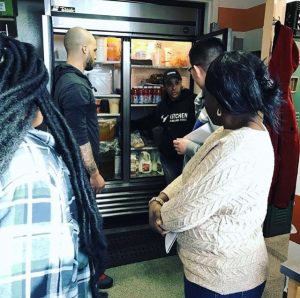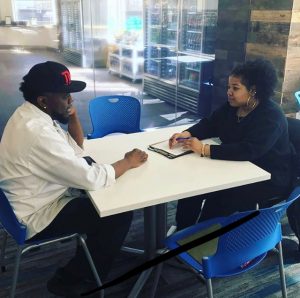Methods of Data Collection
Culinary Program Interview Protocol
Culinary Employee Interview Protocol
Participatory Action Research (PAR) is “a negotiated process developed between people–collaborators–who have agreed to work together to solve a particular issue.” 1 In line with this process, we as a team chose to conduct interviews as our method of data collection.
Billings Forge Community Works provided us with a list of twenty-two culinary programs for analysis. We as a team collected data from two main sources; first, officials from culinary training programs, and second, culinary workers from the City of Hartford. Therefore, we developed a pair of interview protocols: one for the culinary program officials, and the other for culinary employees. Following that, we sent to the culinary program officials a generic letter to schedule an interview.


The interviews helped us gain an understanding of what each program stood for, and how we could apply their lessons to the culinary field in the Hartford area. We found that with telephoning, program officials answered the questions, then followed up with an email providing further information. Out of the 22 programs, we concentrated on 10 particular programs in particular. Ultimately, we were not able to get a simple random sample for the culinary employees. While the interview protocol was conducted like a semi-structured interview, we also arranged the format in the style of a survey. 2 This allowed us to more conveniently categorize our responses, and get a better sense of our subjects. We were able to interview a total of twelve culinary employees who worked in the City of Hartford. From there, we were able to gain some insight.
- Caitlin Cahill, “Repositioning Ethical Commitments: Participatory Action Research as a Relational Praxis of Social Change,” ACME: An International E-Journal for Critical Geographies 6, no. 3 (2007): 362.
- Laura Ruth Johnson, Community-Based Qualitative Research: Approaches for Education and the Social Sciences (Thousand Oaks, CA: SAGE Publications, Inc, 2017), 82.
